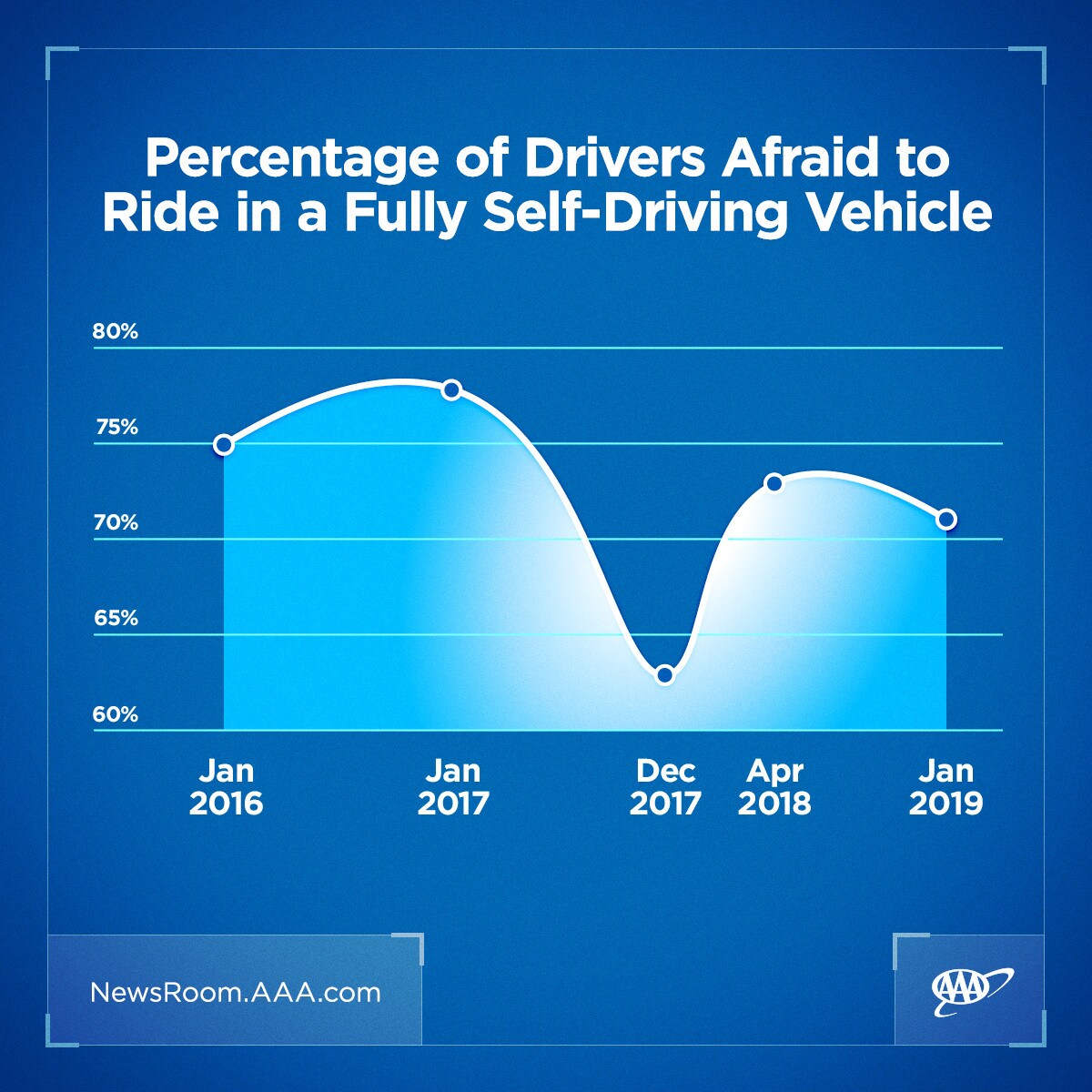Originally Published on August 12, 2019 by Louis Stewart, Moh Musa, Nicola Croce on Weforum.com
While the Silicon Valley race to make autonomous vehicles (AV) feasible is proceeding full speed, with technology giants, capital-loaded startups and veteran automotive partners working incessantly to get miles under their belt, a subtle but influential enemy is jamming their wheels: public distrust.
Based on recent studies, the general public doesn’t appear to be ready to consume AV technology. According to a Reuters/Ipsos poll, half of Americans think autonomous cars are more dangerous than human-driven ones, while two-thirds said they would not buy a fully autonomous car. Another study found out that 15% of the American public doesn’t believe there will ever be an AV on the market, and 42% said they would never ride in a fully automated one. If we look at AAA’s survey, things get even worse: a whopping 71% of Americans claim to be afraid to ride in a self-driving car, an increase from 63% in 2017.

One clear reason about the not-so-encouraging numbers and negative trends is that the AV industry is moving fast. As with most new innovation, this industry has had its setbacks (i.e. Uber’s fatal self-driving car accident in March 2018), which have damaged public opinion of AVs.
Autonomous driving is a complex socio-technical innovation with a profound potential impact on our economy and society. The benefits of self-driving cars are massive: drastic reduction of accidents, deaths and injuries; giving access to mobility to minorities and disabled people; boosting the economy; a reduction in traffic congestion and pollution.
Unfortunately, the lack of trust could hamper development and slow down deployment once the technology matures, preventing society from taking advantage of such game-changing advantages. That’s why it is fundamental to start working today to pave the path towards societal acceptance.
How can we solve this trust problem? The answer is complex and multifaceted. A major role is played by design. Embedding trust into software features, design cues and human-machine interaction is a major challenge for AV developers and something that requires careful consideration. While a lot can be done today on the design of current advanced driver-assistance systems, the impact of design on trust will be even more relevant once AVs will start being deployed at scale.














1 comment